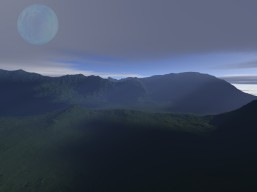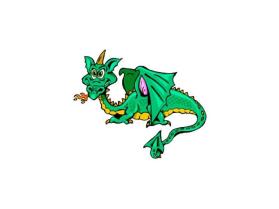“What are you doing?” a voice at my elbow asked.
I jumped. “Whaaa? Where did you come from?”
The elven cleric considered the question. “I believe you created me,” she stated, smiling sweetly.
I glowered at her. “I don’t mean originally. I mean right now.”
“Oh. From that place I stay when you are not writing my story.”
“Well, what are you doing here?”
“I was bored.”
I grunted and turned back to my desk.
“So, what are you doing?” she repeated, as she looked over the notes, charts, spreadsheets and maps covering every inch of my desk.
“If you must know, I am worldbuilding.”
“Worldbuilding?” Her brow wrinkled.
“Yes, worldbuilding. I am creating a setting for a story I am planning.”
Her expression did not change.
I sighed. “A story has to take place somewhere, right?” I asked.
The elf gave a tentative nod. “I suppose so. I never really thought about it.”
“Look,” I said, irritable at the interruption, “Every novel or short story is set in a specific place. Many authors of books set in the real world spend considerable time doing extensive research on locations for their stories. They may even visit the place they plan to use as the setting for their novel, to get a feel for the local history, people, and unique ‘flavor’ of a location. Authors who set their stories in the real world’s past have to research the history of the era in which they set their stories. Authors who write science fiction and fantasy may choose to place their stories in the real world, or they may choose to create a new world in which their stories take place. I am creating a new world.”

My cleric considered this, while I turned back to my desk. Just as I was becoming immersed in my work, I felt a tap on my shoulder.
“Now what?” I winced at the impatience in my own voice.
“If fantasy writers can set their stories in what you term the real world, why did you choose to create a new world for your stories?”
“Because the level of technology in the real world would be incompatible with the level of magic and mythic beings that inhabit my story.”
“I see,” she replied. She plainly didn’t.
“What do you think would happen to our friend the dragon if she was seen flying around in the real world?” I asked.
 “I don’t know. I know little about your real world.”
“I don’t know. I know little about your real world.”
“Well, I can tell you, there are weapons in my world that would reduce the dragon to ashes in mere seconds.”
“So you had to create a world where the dragon would be a most powerful and fearsome creature?”
“Yes, and a world where people can change shapes through the use of magic or the blessing of a deity…or who can magically spy on people many days’ travel away.”
“I see.” The cleric replied, but she still looked confused. She gestured to the mess on my desk. “But all these charts and maps and…what have I heard you call these things? Bedspreads?”
“Spreadsheets,” I corrected her.

“Right. Spreadsheets.” Her expression told me she felt this name no less informative than what she had termed them. “For what purpose do you employ these devices?”
I struggled to explain. “Because I have to know everything about the world before I can start placing characters and plots in it. For example, I have to know how large it is, how many moons it has, what climate can be found in the various parts of the world, the location of mountains, plains, rivers, seas, and cities. I also have to know the length of a year, what constellations can be seen at different times of the year in different spots in the sky, what sorts of creatures inhabit the various ecosystems, and how many of those creatures are sentient. I have to know the level of technology and the system of magic, the religions and the cultures of the various races of humanoids, the economic systems, and the languages, the food, the history, etc. And I have to keep track of all this through the entire novel or series of novels.”
“For what purpose do you need so much information?”
“So I know what is possible in my new world, and who can do what. I don’t want a character being killed with a gun in a world that is generations away from that level of technology, for example.”
“A gun?”
“A weapon that utilizes explosive powder to propel small metal projectiles.”
My cleric looked at me as if I was speaking Gnomish.
“Okay, never mind the gun. I need the information because I don’t want to end up writing about a character doing something that is impossible for him or her. For example, if a certain race in my world – say dwarves or goblins or gnomes – can not perform any magic, then I certainly could not have a member of that race being one of the premier wizards of that world. Or if a certain area of that world is desert, and only gets a few inches of rain per year, I can not have a group of adventurers in that area slogging through the growing puddles on day 5 of a rainstorm. And if horses are the only way to travel in my world, I can not have my adventurers travel halfway across the world in mere hours. Unless, of course, I want to write about something that goes against the rules of my world, because that is the story…how a dwarf became a wizard or an adventuring party drowned in the desert when the gods changed the weather patterns or one of my characters has a ring of teleportation.”
“Now I understand!” The cleric graced me with a huge smile. “That is a lot of work!”
“Yes it is. But it is essential work. Do you remember the discussion I had with our visitor, Ollie, last week? We discussed suspended disbelief. It is necessary for a reader to suspend their disbelief and accept as real the elements of the story they are reading.”
“I remember. I overheard you and Ollie discussing that.”
“Well, the worst thing I could do is make a mistake that would cause the reader to disbelieve. So, I carefully create a world, keep track of all the rules, the customs, the food, the geography, etc., and I make certain everything that happens in the book actually could happen within those parameters.”

The elf looked at me, as if trying to figure something out. “You do all this work in order to give voice to our stories…my story and that of the other characters?”
I nodded.
She looked impressed. “Then we owe you many thanks!”
I smiled. “You know, if you really want to thank me, stop calling staff meetings in the middle of the night!”
“You must to talk to the arrogant one about that.” The elf laughed gaily as she skipped out of the room.
I shook my head and turned back to creating a new world. This is going to take a long time. If you think you would like to see how my new world is progressing, feel free to stop back from time to time. I’ll keep the porch light on for you.
Great explanation of things those of us who don’t dwell in such worlds never would have known. And Ollie was impressed that he was remembered – but he asked me a strange question about your dragon. He wanted to know how she was. Why strange? Because he’s never asked me about a dragon before.
LikeLiked by 2 people
Glad you found the post informative, James! And please tell Ollie he is remembered fondly, not only by me but by the elven cleric and by the dragon. Dragon is well, and wants Ollie to know she welcomes him to visit any time he would like.
LikeLike
Excellent and informative post, Marge. Worldbuiolding, whether that world be fantasy, science fiction, or even contemporary “real world”, is a critical and often over-looked part of good story-telling. Thanks for an enjoyable read, as well as an important reminder. 😉
LikeLiked by 1 person
Thanks, Jay! Yes, it is a most important part of creating a story!
LikeLike
I’m impressed. Having a spreadsheet to track my submissions is about all I want of those in my writing. 🙂
LikeLiked by 1 person
I do that, too, Kim! 🙂
LikeLike
This is a fantastic post! I’m in the process of world building right now. As my series is developing, I’m realizing that I have to keep track of all the different aspects from book to book. As my series turns into hopefully books three and four, I can see how I could easily loose track! So I’m putting together a story/series bible in Scrivener! It’s actually kind of fun! Thanks so much for sharing a glimpse of your world building shenanigans, with the help of your elven cleric!
LikeLiked by 1 person
Glad you enjoyed it, S.K.! Let me know how you like Scrivener. It might be more efficient for me than the tons of Excel spreadsheets, Word documents and PowerPoint maps I currently have scattered all over!
LikeLike
First off, very creative. I love culture clash interactions. The way you presented your worldbuilding process was awesome. Great post
LikeLiked by 1 person
Thank you, Jacob! I am glad you enjoyed it.
LikeLike